Filter by
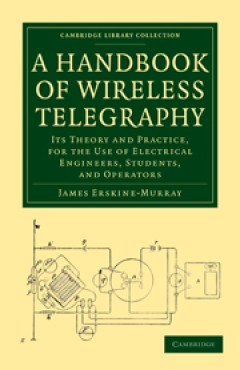
A Handbook of Wireless Telegraphy Its Theory and Practice, for the Use of El…
James Erskine-Murray (1868–1927) was a Scots expert in wireless technology who studied under Lord Kelvin for six years at Glasgow University before arriving at Trinity College, Cambridge as a research student. He eventually became a telegraphy consultant and published this work in 1907. Its aim was to inform engineers, students, and radio operators about many aspects of a rapidly changing tec…
- Edition
- -
- ISBN/ISSN
- 9780511795411
- Collation
- -
- Series Title
- Cambridge Library Collection - Technology
- Call Number
- -

A Hand-Book for Travellers in Spain, and Readers at Home
Targeted at both intrepid travellers and 'readers at home', this two-volume account of Spanish history, topography and culture by Richard Ford (1796–1858) combines the rigour of a gazetteer with the humour and pace of a private travel diary. First published in 1845, as part of John Murray's series of guidebooks, the work made an immediate impact upon the reading public, and it was celebrated …
- Edition
- -
- ISBN/ISSN
- 9781139096140
- Collation
- -
- Series Title
- Cambridge Library Collection - Travel, Europe
- Call Number
- -
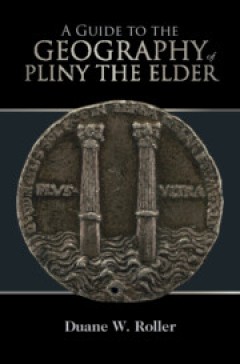
A Guide to the Geography of Pliny the Elder
This is the first thorough English commentary on the geographical books of Pliny the Elder, written in the AD 70s. Pliny's account is the longest in Latin, and represents the geographical knowledge of that era, when the Roman Empire was the dominant force in the Mediterranean world. The work serves both cultural and ideological functions: much of it is topographical, but it also demonstrates th…
- Edition
- -
- ISBN/ISSN
- 9781108693660
- Collation
- -
- Series Title
- -
- Call Number
- -
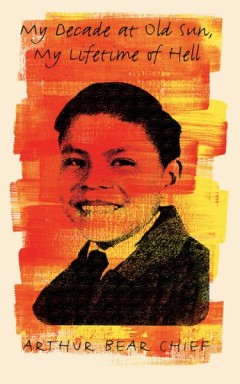
My Decade at Old Sun, My Lifetime of Hell
He returned to Gleichen late in life—to the home left to him by his mother—and it was there that he began to reconnect with Blackfoot language and culture and to write his story. Although the terrific adversity Bear Chief faced in his childhood made an indelible mark on his life, his unyielding spirit is evident throughout his story.
- Edition
- -
- ISBN/ISSN
- 9781771991759.01
- Collation
- 194
- Series Title
- Our Lives: Diary, Memoir, and Letters
- Call Number
- 194 pages
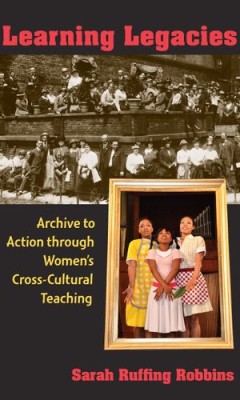
Learning Legacies : Archive to Action through Women's Cross-Cultural Teaching
Learning Legacies explores the history of cross-cultural teaching approaches, to highlight how women writer-educators used stories about their collaborations to promote community-building. Robbins demonstrates how educators used stories that resisted dominant conventions and expectations about learners to navigate cultural differences. Using case studies of educational initiatives on behalf of …
- Edition
- -
- ISBN/ISSN
- 9780472900701
- Collation
- -
- Series Title
- The New Public Scholarship
- Call Number
- 370 ROB l
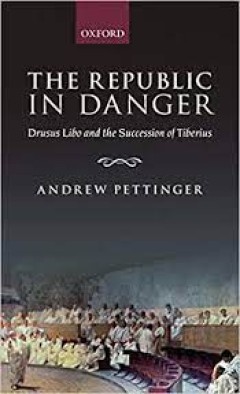
The Republic in Danger : Drusus Libo and the Succession of Tiberius
M. Scribonius Drusus Libo has always been considered an inexplicable victim of predatory prosecutors, destroyed in the changed conditions of Tiberius’ succession to the founder of the Principate. This is wrong. Drusus Libo conspired with a group of Tiberius’ opponents to challenge Tiberius’ right. The senate’s investigation of Drusus Libo will be examined in Chapter One and Chapter Two.…
- Edition
- 1
- ISBN/ISSN
- 978–0–19–960174–5
- Collation
- -
- Series Title
- -
- Call Number
- 900 PET r

A Government Out of Sight The Mystery of National Authority in Nineteenth-Ce…
While it is obvious that America's state and local governments were consistently active during the nineteenth century, a period dominated by laissez-faire, political historians of twentieth-century America have assumed that the national government did very little during this period. A Government Out of Sight challenges this premise, chronicling the ways in which the national government interven…
- Edition
- -
- ISBN/ISSN
- 9780511576324
- Collation
- -
- Series Title
- -
- Call Number
- -
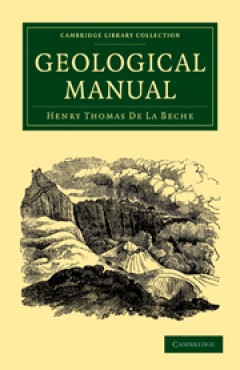
A Geological Manual
Henry De la Beche (1796–1855) was a geologist who published widely on various aspects of this science and was elected to the Royal Society in 1823. He was involved with the Ordnance Survey maps of Britain, and became president of the Geological Society in 1847. De la Beche was also instrumental in the 1851 opening of two influential institutions: the Museum of Practical Geology and the School…
- Edition
- -
- ISBN/ISSN
- 9780511973307
- Collation
- -
- Series Title
- -
- Call Number
- -

A Geographical Survey of Africa Its Rivers, Lakes, Mountains, Productions, S…
James MacQueen (1778–1870) was a British geographer and also one of the most outspoken critics of the methods of the British anti-slavery campaign in the 1820s and 1830s. Although he never visited Africa, he became an acknowledged expert on the continent, through reading all available accounts, ancient and modern, as well as interviewing slave merchants while managing a sugar plantation in th…
- Edition
- -
- ISBN/ISSN
- 9781139034562
- Collation
- -
- Series Title
- Cambridge Library Collection - African Studies
- Call Number
- -

A Geographical and Commercial View of Northern Central Africa
James MacQueen (1778–1870) was a British geographer fascinated by the problem of the River Niger. He set out to try to establish (on the basis of accounts by explorers, traders and missionaries), that one and the same river flowed continuously through Africa and into the Atlantic Ocean, thus challenging long-established beliefs that African rivers either disappeared into the sand or terminate…
- Edition
- -
- ISBN/ISSN
- 9781139034579
- Collation
- -
- Series Title
- Cambridge Library Collection - African Studies
- Call Number
- -
 Computer Science, Information & General Works
Computer Science, Information & General Works  Philosophy & Psychology
Philosophy & Psychology  Religion
Religion  Social Sciences
Social Sciences  Language
Language  Pure Science
Pure Science  Applied Sciences
Applied Sciences  Art & Recreation
Art & Recreation  Literature
Literature  History & Geography
History & Geography